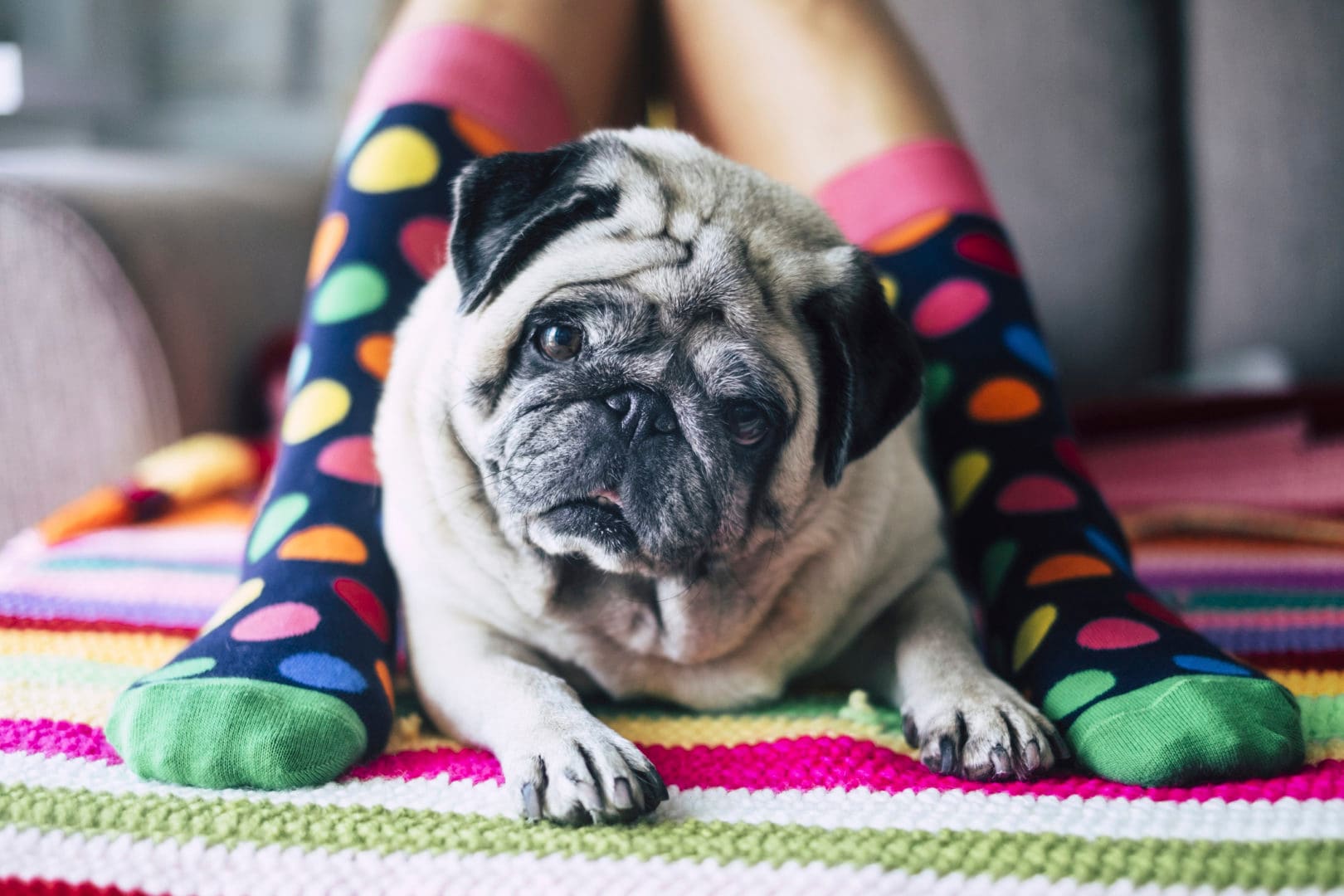Welcoming a furry friend into your home is research-proven to benefit your children’s well-being. Pet ownership may be beneficial to child and adolescent emotional, cognitive, behavioral, educational and social development, according to research published in the International Journal of Environmental Research and Public Health. Of all the animals you could potentially make a new member of your family, dogs are a particularly popular choice.
While every dog is unique, you might want to tailor your search to what have been deemed the best dog breeds for kids — pups with a reputation for being patient and loving with children.
“The best dog breeds for kids depends on a variety of factors,” says veterinarian Dr. Jennifer Coates, who serves on the advisory board for Every Dog’s Dream. “Obviously, the dog needs to be accepting of the unpredictability of children, but you also need to look at things like size, activity level and grooming needs to determine whether they’d be a good fit for the family’s lifestyle.”
Though its breed is never a 100% guarantee that a particular dog will get along well with your child, it’s a starting point that suits many families. Here, several of the best dog breeds for kids, according to experts.
1. Spaniels
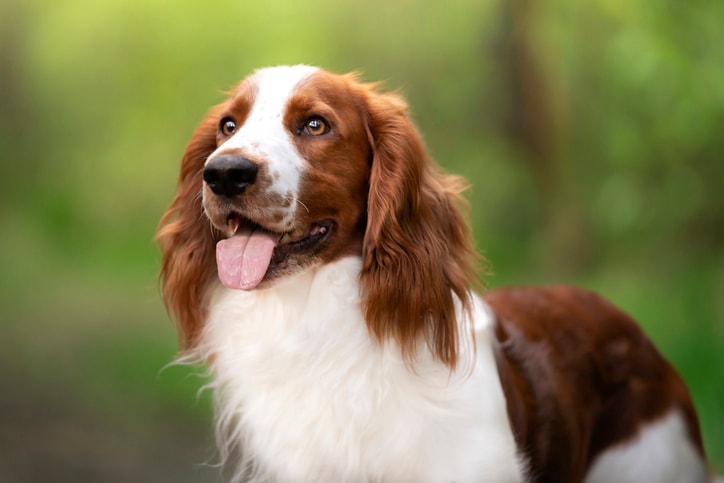
From English springers to Brittanys, Boykins to cockers, Jamie Knowles, the founder of pet carrier Roverlund, is a big fan of Spaniels overall. Having grown up with springers and now the proud owner of an English cocker, Knowles says they easily adapt to living in a city or spending time in the great outdoors.
“In general, spaniels have wonderful demeanors — they truly live to please and are great for families of all sizes,” she says.
“In general, spaniels have wonderful demeanors — they truly live to please and are great for families of all sizes.”
Jamie Knowles, founder of Roverlund
Colleen Demling, a dog behaviorist from dog day care provider Dogtopia, agrees, saying cavalier King Charles spaniels, in particular, are one of the most adaptable of all breeds.
“This furry-eared pooch is extremely friendly and loves to hang out with children and other dogs,” she says. “They are eager to please, patient and do not need a lot of exercise.”
Just know you might do well to bring them with you when you’re running lengthy errand trips or heading out of town.
“They bond very strongly to their family and don’t do well when left for long periods of time,” says Demling.
2. Greyhounds
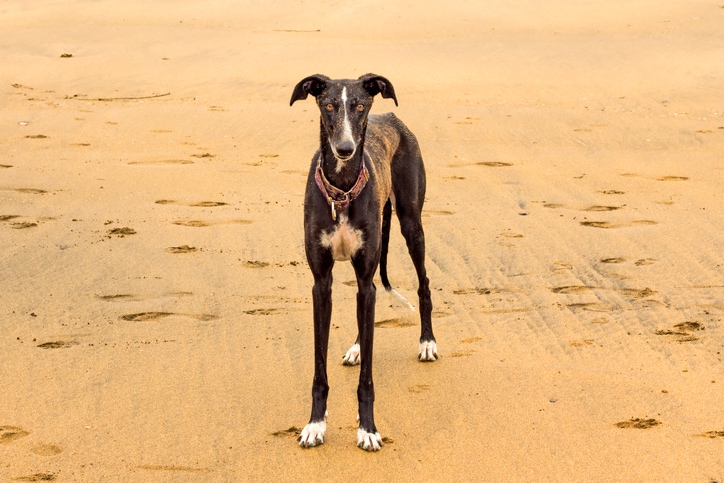
If you live in a smaller space, like an apartment or townhouse, this large, lanky dog is a smart choice, says Russell Hartstein, CEO of Fun Paw Care in Los Angeles. They’ll make a fitting companion for children, as they love short bursts of exercise before sleeping the day away.
Dr. Jim Carlson, a holistic veterinarian and owner of Riverside Animal Clinic in McHenry, Illinois, is also a fan of the breed for kids.
“Greyhounds are excellent family dogs who have a sense of gratitude toward their families and a laid-back outlook on life,” he says. “Greyhounds are often used in animal hospitals as blood donors for other dogs and maintain their calm personality throughout most of life’s ups and downs.”
When you and your kids take your greyhound out for a walk, they’ll exude a chill and friendly demeanor, Carlson says. And when you’re relaxing at home, “they’re happy to sit around the house and cuddle,” he says.
Plus, there are so many retired racing greyhounds that need homes, says Hartstein.
3. Beagle
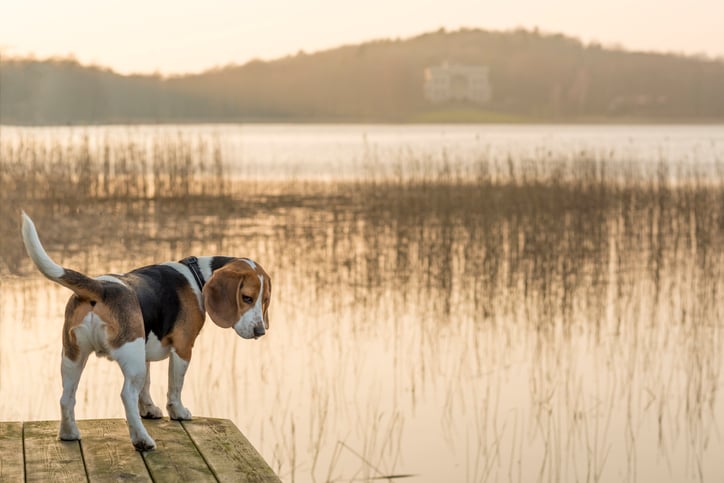
Demling loves beagles — which are among the smallest of the hound dog breed — for kids, because they’re “gentle, affectionate and love to entertain the members of their pack.”
“They have boundless energy and will love running around with kids all day long,” she says.
Hartstein agrees, describing the beagle as “a wonderful smallish dog that will make a great companion. They are very energetic, love to howl and bark, so a person needs to train with them often.”
Snoopy’s breed is also best suited to families who are up for an active lifestyle.
“As a working dog, they require a lot of exercise,” he says.
Another must-know: “Beagles can’t normally be trusted off leash, because they will ignore their pet parent’s commands in order to follow a scent,” says Demling.
4. Shiba inu
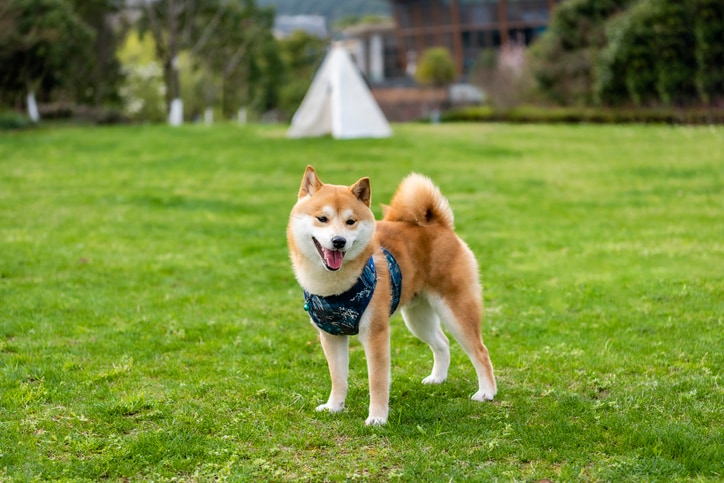
Originating from Japan and considered to be one of the oldest breeds in the world, the shiba inu was bred to be a hunting dog.
“They’re higher energy and more independent than some more needy dogs,” Hartstein says. “Also, they tend to be on the quieter side of the spectrum.”
He also says that they’ll require a decent amount of training and socializing — but then again, so do most dogs.
5. Havanese
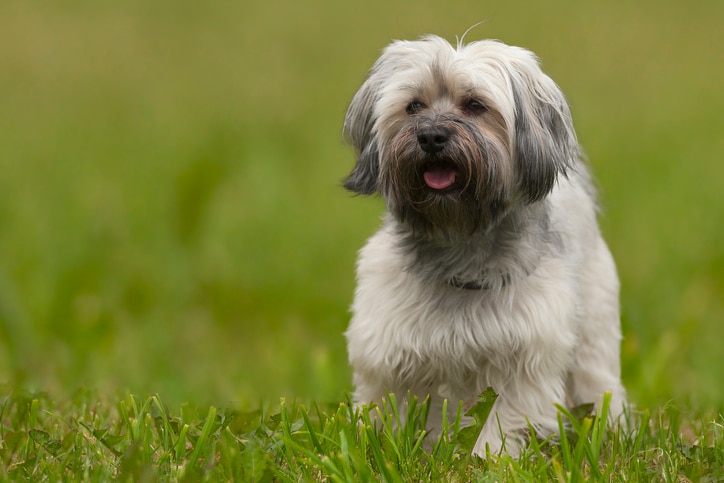
Their small size, adaptable nature and social skills make the Havanese an ideal city dog, according to the American Kennel Club.
“These spunky, long-coated pups are among the smartest of the small dog breeds of dogs,” says Demling. “They can be house-trained quickly and become loyal to their owners almost immediately. They enjoy the company of others and love providing entertainment for children.”
6. Poodle
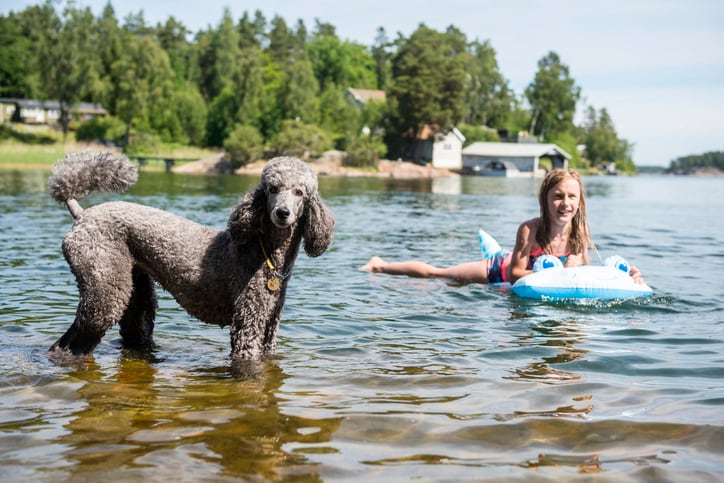
“It’s hard to resist the many outstanding attributes of the poodle — cute, tightly curled coat and hypoallergenic skin,” says Carlson. “Poodles come in several sizes but their keen intelligence is a hallmark of the breed. The combination of brains, beauty and outgoing personality make the poodle an ideal, fun dog for anyone who has a lot of company, likes to travel or go to parks, wants to enjoy dog sports or animal assisted therapy programs.”
And given their natural athleticism, they’ll also do well with an active family.
If you go for a miniature poodle, you can expect them to be athletic, playful and easy to train, according to Demling.
“They bond with all members of the family, making them perfect for ones with children,” she says.
You might also consider another petite member of the poodle family: the bichon frisé.
“They’re energetic, so they need regular exercise but they are not big barkers and don’t shed,” says Hartstein. “They love to cuddle and make great family members.”
7. Pug
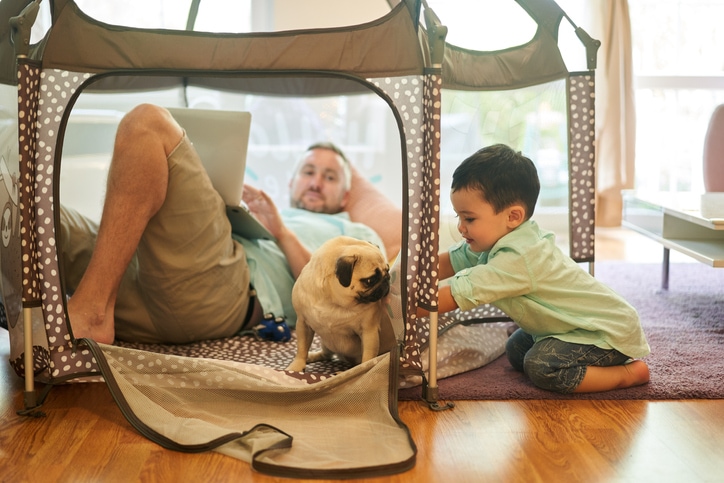
With a short-hair coat and big eyes, pugs are among the most easy-going and adaptable of the small breeds, says Demling.
“They are friendly and playful and loyal to anyone who shows them attention,” she says. “If you can get past the amount that they shed, they are a perfect family dog.”
Just be careful in the summertime or when enjoying particularly active pastimes with your kids.
“Pugs are brachycephalic, which means that they have greater difficulty cooling themselves than dogs with normal sized snouts,” says Demling. “They must be carefully monitored during summer heat waves, and they don’t do well on long hikes or other activities that require strenuous exercise.”
8. Golden retrievers
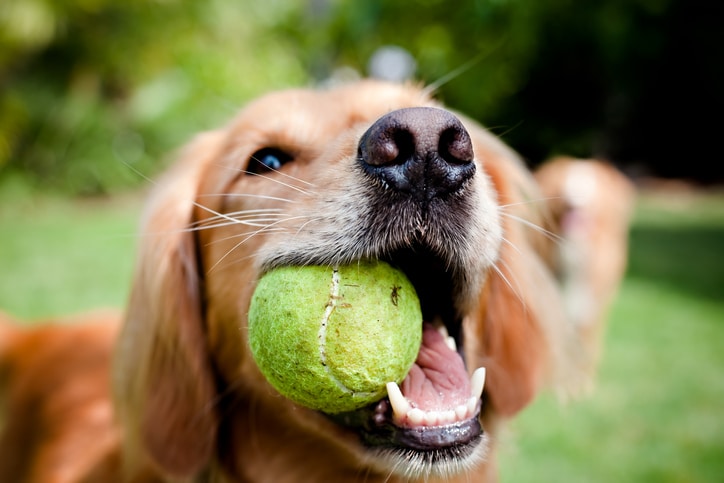
If you grew up in the ‘80s and ‘90s, you’re familiar with one of TV’s most famous dogs: Comet from “Full House.” He’s a loving, friendly golden retriever. Turns out, the Tanners were onto something.
“As a dad, I would count the golden retriever as a top choice for the best family dog and friendliest patient.”
Dr. Jim Carlson, holistic veterinarian
“As a dad, I would count the golden retriever as a top choice for the best family dog and friendliest patient,” says Carlson. “The golden’s sweet, eager to please personality is topped with a remarkably easy going nature. These dogs are naturally in tune with owners, fun-loving and nearly humanlike in their care, concern and compassion for children, adults, family and strangers.”
Plus, whether you’re doing volunteer work or visiting aging loved ones with your kids, your golden will make a perfect assistant.
“Golden retrievers are natural animal-assisted therapy dog candidates and terrific helpers to humans in more ways than can be counted,” Carlson says.
Just remember that they are large, require a lot of energy to stay physically and mentally healthy and their double coats also shed a lot, says Coates.
Final advice
While certain pups might have a reputation for being the best dog breeds for kids, you’ll do well to think about your pet search in a broader sense.
“If you’re looking to add a dog to your family, make adoption your first option,” the American Society for the Prevention of Cruelty to Animals (ASPCA) tells Care in a statement.
“Not only will you be saving a life, but you will ensure that your money supports those who put the health and welfare of dogs first, while also freeing up space for other animals in need. Shelters across the country have dogs and puppies of all ages, sizes and breeds for adoption who need loving homes.”
Natalie Buxton, director of communications at Operation Kindness, the leading no-kill animal shelter in North Texas, agrees.
“Every dog, regardless of breed, is a unique individual,” Buxton says. “Instead of searching for one particular breed, we encourage families who are interested in adding a dog to their family to visit an adoption center to work with an adoption counselor who can help guide them to the best prospective pet for their family.”
